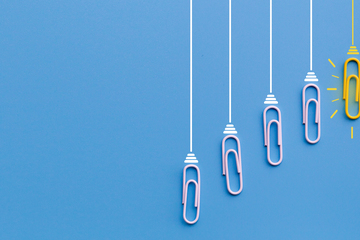Browse
Culture And Society
Post by vijaya:
A food pyramid is a visual representation of a balanced diet, showing which food groups to eat more or less of. It typically categorizes foods into groups and suggests the optimal number of servings from each group to maintain health. The most well-known version is the one developed by the US Department of Agriculture, which has been revised and adapted by various countries.
Key Features of a Food Pyramid:
Base:
Represents the food groups that should form the foundation of a healthy diet, consumed in larger quantities.
Apex:
Represents the food groups to be consumed in smaller amounts, typically fats, oils, and sweets.
Middle Layers:
Represent the other food groups like grains, fruits, vegetables, and protein sources, with varying recommendations for daily intake -
By:
Vijaya Mhetre
Sunday, Jul 27, 2025
CULTURE AND SOCIETY
+1
Leave a comment
Post by Anne:A food pyramid is a visual representation of a balanced diet, showing which food groups to eat more or less of. It typically categorizes foods into groups and suggests the optimal number of servings from each group to maintain health. The most well-known version is the one developed by the US Department of Agriculture, which has been revised and adapted by various countries. Key Features of a Food Pyramid: Base: Represents the food groups that should form the foundation of a healthy diet, consumed in larger quantities. Apex: Represents the food groups to be consumed in smaller amounts, typically fats, oils, and sweets. Middle Layers: Represent the other food groups like grains, fruits, vegetables, and protein sources, with varying recommendations for daily intake
By:
Anne miller New vijayalaxmi santosh mhetre mali
Sunday, Jul 27, 2025
CULTURE AND SOCIETY
+1
Leave a comment
A food pyramid is a visual representation of a balanced diet, showing which food groups to eat more or less of. It typically categorizes foods into groups and suggests the optimal number of servings from each group to maintain health. The most well-known version is the one developed by the US Department of Agriculture, which has been revised and adapted by various countries.
Key Features of a Food Pyramid:
Base:
Represents the food groups that should form the foundation of a healthy diet, consumed in larger quantities.
Apex:
Represents the food groups to be consumed in smaller amounts, typically fats, oils, and sweets.
Middle Layers:
Represent the other food groups like grains, fruits, vegetables, and protein sources, with varying recommendations for daily intake
By:
Anne miller New vijayalaxmi santosh mhetre mali
Thursday, Jul 10, 2025
CULTURE AND SOCIETY
Leave a comment
Send your first API request
Postman's API client enables you to create and send API requests, including HTTP, GraphQL, and gRPC requests. Using Postman, you can send a request to an endpoint, retrieve data from a data source, or test an API's functionality. You don't need to enter commands in a terminal or write any code. When you create a new request and click Send, the API response returns directly in Postman.
Send an API request
Make sure you've downloaded and installed the Postman desktop app. When you're ready, open the Postman desktop app and send your first API request.
Click Add icon Add in the workbench to open a new tab.
Enter "postman-echo.com/get" for the request URL.
Click Send.
By:
Vijaya Mhetre
Monday, Jun 2, 2025
CULTURE AND SOCIETY
Leave a comment
Stress management
Stress management offers a range of ways to help you better deal with stress and difficulty, also called adversity, in your life. Managing stress can help you lead a more balanced, healthier life.
Stress is an automatic physical, mental and emotional response to a difficult event. It's a common part of everyone's life. When used positively, stress can lead to growth, action and change. But negative, long-term stress can lessen your quality of life.
Stress management approaches include:
Learning skills such as problem-solving, focusing on important tasks first and managing your time.
Improving your ability to cope with difficult events that happen in life. For example, you may learn how to improve your emotional awareness and reactions. You also may learn how to increase your sense of control. And you may find greater meaning and purpose in life and have more gratitude and optimism.
Practicing relaxation techniques such as deep breathing, yoga, meditation, tai chi, exercise and prayer.
Improving your personal relationships.
By:
Vijayalaxmi Santosh Mhetre
Monday, May 12, 2025
CULTURE AND SOCIETY
+2

Leave a comment
Stress management
Stress management offers a range of ways to help you better deal with stress and difficulty, also called adversity, in your life. Managing stress can help you lead a more balanced, healthier life.
Stress is an automatic physical, mental and emotional response to a difficult event. It's a common part of everyone's life. When used positively, stress can lead to growth, action and change. But negative, long-term stress can lessen your quality of life.
Stress management approaches include:
Learning skills such as problem-solving, focusing on important tasks first and managing your time.
Improving your ability to cope with difficult events that happen in life. For example, you may learn how to improve your emotional awareness and reactions. You also may learn how to increase your sense of control. And you may find greater meaning and purpose in life and have more gratitude and optimism.
Practicing relaxation techniques such as deep breathing, yoga, meditation, tai chi, exercise and prayer.
Improving your personal relationships.
By:
Vijayalaxmi Santosh Mhetre
Monday, May 12, 2025
CULTURE AND SOCIETY
+1

Leave a comment
10 TIPS FOR MAINTAINING A HEALTHY LIFESTYLE AND BODY WEIGHT
At this extreme moment, we began working from home, away from campus, and keeping social distance for as many people as possible. As we stay home and are stuck with the foods that have been in our fridge or pantry for a while, we are temporarily living a sedentary lifestyle with increased odds of physical inactivity, excessive eating and sitting, stress, anxiety, and depression. In particular, many of us will gain some weight during the pandemic and may keep the extra weight permanently, which may carry considerable health risks for type 2 diabetes, hypertension, heart attack, stroke, and other health problems.
Here, I’d like to share some basic tips and resources for how to maintain your healthy lifestyle, body weight, and overall well-being while staying home and engaging in social distancing.
Measure and Watch Your Weight
Keeping track of your body weight on a daily or weekly basis will help you see what you’re losing and/or what you’re gaining.
Limit Unhealthy Foods and Eat Healthy Meals
Do not forget to eat breakfast and choose a nutritious meal with more protein and fiber and less fat, sugar, and calories. For more information on weight-control foods and dietary recommendations, please check the following website: www.hsph.harvard.edu/obesity-prevention-source/obesity-causes/diet-and-weight/.
Take Multivitamin Supplements
To make sure you have sufficient levels of nutrients, taking a daily multivitamin supplement is a good idea, especially when you do not have a variety of vegetables and fruits at home. Many micronutrients are vital to your immune system, including vitamins A, B6, B12, C, D, and E, as well as zinc, iron, copper, selenium, and magnesium. However, there’s currently NO available evidence that adding any supplements or “miracle mineral supplements” to your diet will help protect you from the virus or increase recovery. In some cases, high doses of vitamins can be bad for your health.
Drink Water and Stay Hydrated, and Limit Sugared Beverages
Drink water regularly to stay healthy, but there is NO evidence that drinking water frequently (e.g. every 15 minutes) can help prevent any viral infection. For more information on drinking water and coronavirus, please check the following EPA website: www.epa.gov/coronavirus/coronavirus-and-drinking-water-and-wastewater.
By:
Vijayalaxmi Santosh Mhetre
Friday, May 9, 2025
CULTURE AND SOCIETY
+3

Leave a comment
10 TIPS FOR MAINTAINING A HEALTHY LIFESTYLE AND BODY WEIGHT
At this extreme moment, we began working from home, away from campus, and keeping social distance for as many people as possible. As we stay home and are stuck with the foods that have been in our fridge or pantry for a while, we are temporarily living a sedentary lifestyle with increased odds of physical inactivity, excessive eating and sitting, stress, anxiety, and depression. In particular, many of us will gain some weight during the pandemic and may keep the extra weight permanently, which may carry considerable health risks for type 2 diabetes, hypertension, heart attack, stroke, and other health problems.
Here, I’d like to share some basic tips and resources for how to maintain your healthy lifestyle, body weight, and overall well-being while staying home and engaging in social distancing.
Measure and Watch Your Weight
Keeping track of your body weight on a daily or weekly basis will help you see what you’re losing and/or what you’re gaining.
Limit Unhealthy Foods and Eat Healthy Meals
Do not forget to eat breakfast and choose a nutritious meal with more protein and fiber and less fat, sugar, and calories. For more information on weight-control foods and dietary recommendations, please check the following website: www.hsph.harvard.edu/obesity-prevention-source/obesity-causes/diet-and-weight/.
Take Multivitamin Supplements
To make sure you have sufficient levels of nutrients, taking a daily multivitamin supplement is a good idea, especially when you do not have a variety of vegetables and fruits at home. Many micronutrients are vital to your immune system, including vitamins A, B6, B12, C, D, and E, as well as zinc, iron, copper, selenium, and magnesium. However, there’s currently NO available evidence that adding any supplements or “miracle mineral supplements” to your diet will help protect you from the virus or increase recovery. In some cases, high doses of vitamins can be bad for your health.
Drink Water and Stay Hydrated, and Limit Sugared Beverages
Drink water regularly to stay healthy, but there is NO evidence that drinking water frequently (e.g. every 15 minutes) can help prevent any viral infection. For more information on drinking water and coronavirus, please check the following EPA website: www.epa.gov/coronavirus/coronavirus-and-drinking-water-and-wastewater.
By:
Vijayalaxmi Santosh Mhetre
Friday, May 9, 2025
CULTURE AND SOCIETY
+3

Leave a comment
At this extreme moment, we began working from home, away from campus, and keeping social distance for as many people as possible. As we stay home and are stuck with the foods that have been in our fridge or pantry for a while, we are temporarily living a sedentary lifestyle with increased odds of physical inactivity, excessive eating and sitting, stress, anxiety, and depression. In particular, many of us will gain some weight during the pandemic and may keep the extra weight permanently, which may carry considerable health risks for type 2 diabetes, hypertension, heart attack, stroke, and other health problems.
By:
Vijayalaxmi Santosh Mhetre
Friday, May 9, 2025
CULTURE AND SOCIETY
+3





Leave a comment